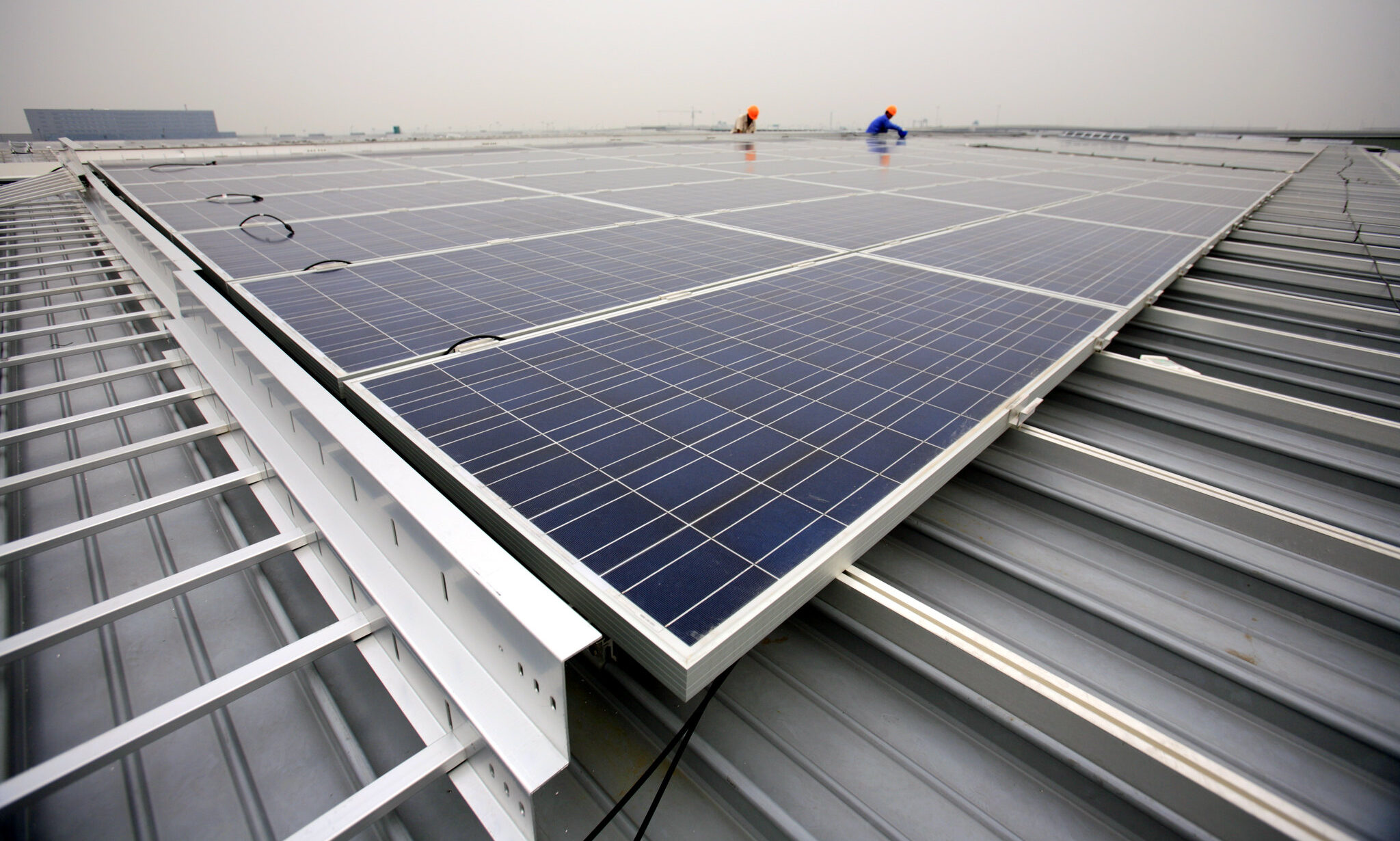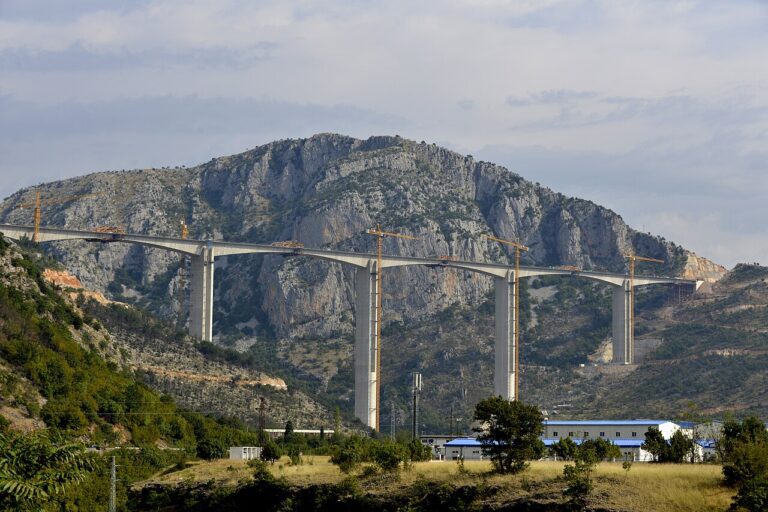
The article is published as part of a joint issue “Green Synergies: Sustainability, Security and Taiwan-Europe Collaboration” between CHOICE and the University of Nottingham’s Taiwan Insight.
The Democratic Progressive Party (DPP) has been committed to its ambitious solar energy target despite growing controversies since 2016. This commitment goes hand in hand with enhancing the DPP’s ideational power through the narrative of “Taiwan can green,” which helps the party navigate escalating geopolitical tensions across the Taiwan Strait while coping with domestic political challenges at the same time.
Taiwan has almost tripled its proportion of energy generation from renewable sources in the past decade, rising from 4.2 percent in 2015 to 11.9 percent in 2024. The process was, however, anything but free of controversies – ranging from communal conflicts over solar panel installations and national referendum on the role of renewable energy in the phase-out of nuclear energy, to misinformation campaigns targeting renewables. Despite this, the DPP-led central government showed a steadfast commitment to the energy transition, setting an aggressive target of 20 percent energy generation from renewables by 2025.
How does the DPP find it politically beneficial to adhere to its controversial energy policy? While some critics argue that the DPP has been driven by nothing but ideological commitment to eliminate nuclear energy, this article suggests that the party has also pragmatic motivations. In addition to enhancing Taiwan’s economic competitiveness and energy security – two oft-cited reasons – there is also the discursive utility of Taiwan’s energy transition within the context of cross-strait tensions.
Escalation of Geopolitical Tensions
Since Tsai Ing-wen assumed the presidency under the DPP in 2016, cross-strait relations have become increasingly strained. China accused the Tsai administration of not recognizing the “One-China Principle” underlying the “1992 Consensus,” which it views as a move toward secession. In response, Beijing stepped up its efforts in luring Taiwan’s diplomatic allies into switching recognition, which led to a drastic decrease in countries recognizing Taiwan from 22 in 2016 to just 12 in 2024. Taiwan was also effectively barred from participating in the UN agencies, such as the World Health Organization, after the Tsai Administration refused to be admitted under the name “Chinese Taipei.”
Additionally, Beijing took retaliatory measures against countries like Lithuania that had sought to elevate their relations with Taiwan. Between 2022 and 2024, China has also conducted more intensive military drills around Taiwan, signaling its increasing willingness to take over Taiwan by force if necessary. These escalations in the cross-strait tensions have deepened public anxiety about the repercussions of an increasingly outright confrontation with China.
Taiwan Can Green and Taiwan is Greening
Under such increasing geopolitical pressures, Taiwan has employed non-traditional diplomatic strategies to expand its international support and safeguard its precarious position. As the Deputy Minister of Foreign Affairs Wu Chih-chung recently noted, the Ministry of Foreign Affairs (MOFA) has adopted a “working-official model” (官式運作模式), which fosters pragmatic partnerships in areas such as innovation, trade, technology, and democratic values – even in the absence of formal diplomatic recognition.
This approach was exemplified by the “Taiwan can help (and Taiwan is helping)” campaign during the COVID-19 pandemic, which saw Taiwan delivering medical supplies and other types of support to over 80 countries. The “Taiwan can help” narrative was underscored by three key messages: 1.) Taiwan is valuable to the international community with its advanced public health system; 2.) Taiwan is willing and capable of helping others in need; and 3.) Taiwan welcomes new forms of collaboration with countries it does not have diplomatic relations with.
A preliminary content analysis of the diplomatic activities released by MOFA between 2023 and 2024 shows that Taiwan’s narrative of energy transition resembles that of “Taiwan can help” in several ways. First, in official documents such as “Taiwan’s Pathway to Net-Zero Emissions in 2050,” the central government pledges to be a valuable member of the international community by reducing carbon emissions through sustained renewable energy production. This message is echoed by NGOs representing Taiwan at the side meetings of the United Nations Framework Convention on Climate Change (UNFCCC) as well as MOFA’s promotional material such as “Green Action Taiwan!”.
In the past, Taiwan was a significant exporter of solar panels, accounting for about 15 percent of the global photovoltaic (PV) production in the early 2010s. With the rise of Chinese PV firms, however, Taiwanese firms were outcompeted due to their higher production costs, especially in the upstream segment of the supply chain where Chinese corporations now control over 90 percent of the global market. The central government’s intervention to boost domestic solar installations helped Taiwan’s photovoltaic industry to survive, preserving a complete PV supply chain within Taiwan – from upstream to downstream. Moreover, the UNFCCC provides a venue for Taiwan to not only demonstrate its solidarity with other countries in upholding the principle of “common but differentiated responsibility,” but to showcase its renewable energy capabilities – even if its overall carbon reduction performance remains modest.
Second, the narrative of energy transition emphasizes Taiwan’s willingness to provide technological assistance to countries in need of renewable energy. Since the 2010s, Taiwan’s foreign aid strategy has shifted from maintaining diplomatic recognition to supporting the development of like-minded countries. The strong presence of the photovoltaic industry gives Taiwan valuable leverage to provide relevant solar energy technologies to underdeveloped countries like Tuvalu as acts of goodwill.
Third, Taiwan’s PV sector facilitates new business partnerships with developed countries in the Asia-Pacific and Europe. As the international order in 2025 turns increasingly protectionist, small states with strategic assets are among the first to become casualties of the Sino-American rivalry – as evident in the sale of Panama ports owned by a Hong Kong-based transnational corporation. While cost remains a major concern for renewable energy firms, they increasingly take into consideration the need to diversify the risks of global supply chain disruptions, especially when it comes to the development of low-carbon energy infrastructure. Because of this, doing business in democratic countries can be a practical way to reduce the risks of policy uncertainty. This bolsters both green investment and business confidence in Taiwan. As such, promoting the idea that “Taiwan can green,” alongside the achievements in its domestic energy transition, enhances Taiwan’s soft power and international appeal.
Home-Grown Renewable Energy Technologies
Domestically, the “Taiwan can green” narrative is framed in terms of Taiwan’s pride in “Made-in-Taiwan” (MIT) renewable energy technologies. This appeals to the increasing proportion of the population identifying as Taiwanese, which is in tandem with their prevailing support for energy transition. The DPP-led government portrays itself as the guardian of such pride by nurturing Taiwan’s global economic competitiveness with advanced technologies. This helps it to cope with the mounting public grievances about its perceived incompetency in handling domestic economic issues and alleged connections between organized crime and the solar energy industry – issued exacerbated by misinformation campaigns from China.
For years, cross-strait relations have been central to Taiwan’s presidential elections, often framed as a trade-off between economic benefits offered by China and political autonomy of Taiwan. A deep ideological divide along the partisan line persists: KMT supporters prefer a closer economic and political relationship with China, while the DPP supporters advocate greater distance. Historically, an important source of support for the DPP’s electoral strength stemmed from its ideological conviction in Taiwan’s political and economic distinctiveness from China. According to Academia Sinica’s China Impact Survey, the majority of respondents between 2019 and 2023 regarded the issue of “national sovereignty” as more important than “economic benefits” when it came to cross-strait interactions – a sharp contrast to the 2013-2018 period. The DPP’s promotion of the “Taiwan can green” narrative – rooted in the national pride in Taiwan’s renewable energy strength – reinforces Taiwan’s distinctiveness from China and benefits the party electorally.
Concluding Remarks
Recognizing Taiwan’s stellar performance in several areas of global affairs, President Lai Ching-te remarked at the Third National Climate Change Committee in January 2025: “In the eyes of the international community, today’s Taiwan is not the Taiwan of the past. We must be even more proactive as we work to fulfill our international responsibilities.” This shows that the “Taiwan can green” narrative continues to be seen as a useful tool for attracting the attention of the international community – particularly in the absence of support from the US under the Trump administration.
Meanwhile, it is unclear whether the narrative will remain to be as useful for the DPP as it was in the past, especially as it continues to be discursively linked to Taiwan’s distinctiveness from China. The China Impact Survey revealed a dramatic shift in public opinion in 2024: about 70 percent of the respondents now consider both “national sovereignty” and “economic benefits” equally important in cross-strait relations, compared to less than 10 percent over the past decade. This change could indicate rising public anxiety about the practical ramifications of over-emphasizing Taiwan’s distinctiveness amid the heightened geopolitical tensions. Given growing doubts about the US commitment to Taiwan under the second Trump administration, such uneasiness will likely continue.
Written by
Anthony Ho-fai Li
Anthony Ho-fai Li finished his PhD in environmental governance at the University of Hong Kong. He specializes in institutional analysis, collaborative governance, and Taiwan’s energy transitions. He is also an Adam Smith Fellow (2022-23) and a Research Fellow of Earth System Governance.


